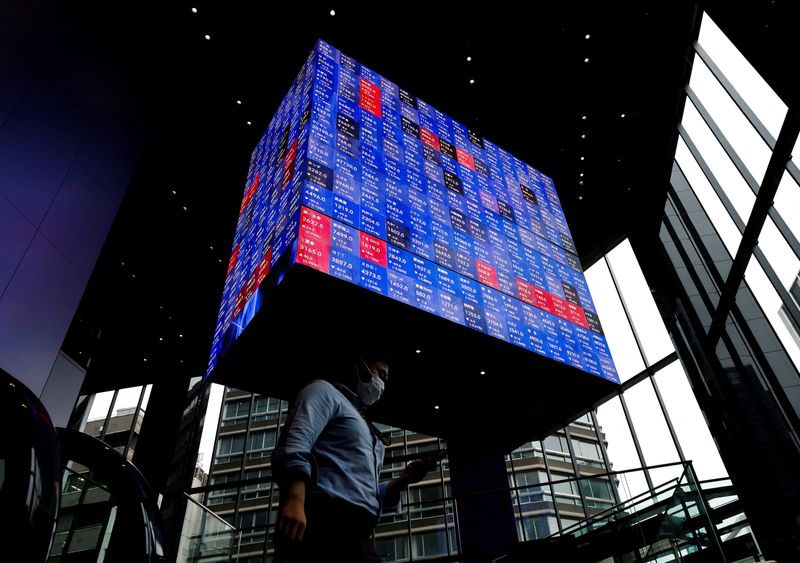Global stocks rise in anticipation of economic data
2023.01.11 08:37

Global stocks rise in anticipation of economic data
By Kristina Sobol
Budrigannews.com – On the hope that U.S. inflation and earnings figures due later in the week point to a resilient economy and a slower pace of interest rate hikes, Wall Street was poised to join the global stock rally on Wednesday.
Investors, on the other hand, were waiting to see how Thursday’s U.S. consumer price index (CPI) would affect the Federal Reserve’s decision-making.
After scaling an eight-month peak on bets that the U.S. inflation data will show a slowdown in price increases, the dollar remained steady and gold remained unchanged.
On the hope that Chinese demand will rebound after the country lifted its COVID-19 restrictions, crude oil prices rebounded from early losses and moved above $9,000 per tonne for the first time since June.
Futures on the US stock index were stronger.
Investors hoped that the rout of last year would not happen again and that any economic recession would be brief or even avoidable, and as a result, stocks continued to build on their gains for 2023.
After a decline of nearly 20% last year, analysts pondered the extent to which they should shift their focus from stocks to bonds. This year, the MSCI all-country stock index gained 0.16 percent, adding to its gain of nearly 3 percent.
According to Mike Hewson, chief markets analyst at CMC Markets, “We are having a warmer winter, recession risks are decreasing, and consequently there is a perception that things might not be as bad, and that is what is driving equity markets higher, particularly in Europe.”
The 600-company STOXX index in Europe increased by 0.5 percent to levels not seen since the middle of 2022.
According to Mark Tinker, chief investment officer at Toscafund asset management in Hong Kong, investors were considering whether there would be further downside this year before markets stabilized following the bear market of 2022.
“The division of opinion that we have now – are we on the verge of a second leg?” Tinker went on to say that this was causing investors to place smaller bets on markets, which helped set a more upbeat tone.
“At this point, there isn’t really a strong conviction about it. “People are moving away from the idea that “there’s going to be a second leg” at the moment,” he stated.
With Bank of America’s (NYSE:) results on Friday, the U.S. earnings season kicks into high gear. NYSE: JPMorgan Chase NYSE: Wells Fargo likewise Citigroup (NYSE:) to provide hints regarding the economic outlook.
Goldman Sachs employees (NYSE:) were waiting to hear whether they would be hired in a layoff as a result of a significant slowdown in business transactions since the Ukraine war.
The U.S. consumer price data due on Thursday is the primary focus of investors. December’s headline annual inflation is expected to be 6.5 percent, down from 7.1 percent in November.
The data on Thursday will have a significant impact on the Fed’s decision regarding interest rates at its upcoming meeting at the beginning of February.
“Equity markets celebrated the lack of any clear guidance on policy direction,” according to Saxo strategists. “With some expectations that Powell would likely push back on easing financial conditions,” they said.
According to business surveys, the U.S. economy is slowing down, and the Federal Reserve will be able to ease policy later this year if inflation allows.
Outside of Japan, MSCI’s broadest index of Asia-Pacific shares gained 1%, reaching a six-month high of 0.2 percent. Australia’s went up by 0.9%.
Hopes of a strong economic recovery from the COVID-19 pandemic and discounted stock values contributed to Hong Kong’s 0.5% increase.
After hovering close to a seven-month low, the, which measures its performance against six major currencies, was up 0.184% at 103.44.
Sterling fell by 0.3 percent to $1.2115, while the Japanese yen rose by 0.4 percent to 132.8 per dollar.
The yield on was 3.5853 percent lower. The yield on the two-year U.S. Treasury, which typically moves in line with expectations for interest rates, was lower at 4.492%.
As a result of yet another drop in the price of energy, investors began to have a more positive outlook regarding the outlook for inflation. This led to a decrease in the yields on government bonds issued by the Euro zone.








